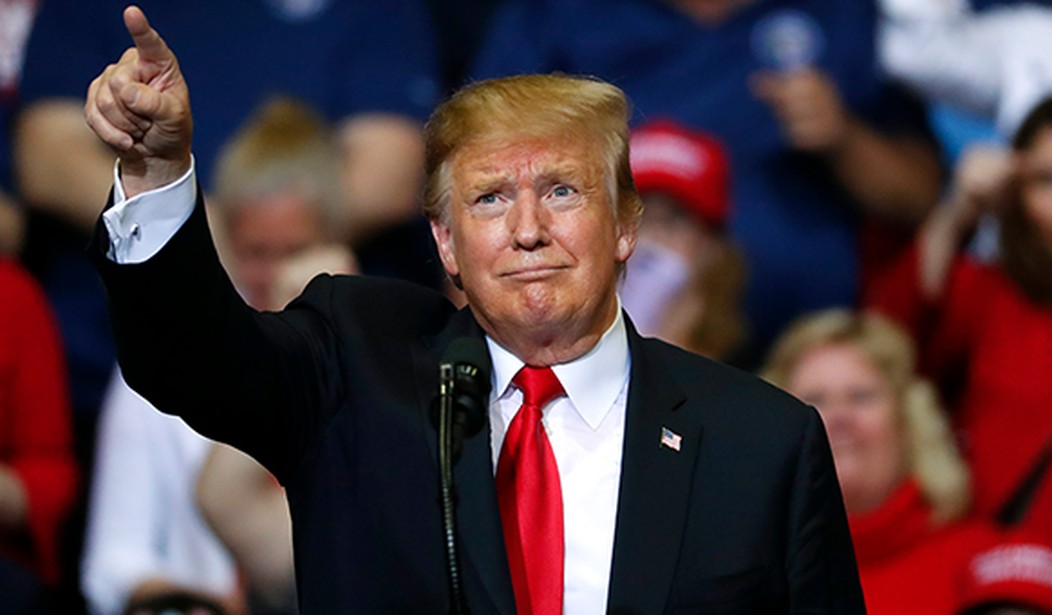The Trump administration has leveled another strike against what they’re calling “the Troika of Tyranny” — Cuba, Venezuela, and Nicaragua — and this time it will doubtless be seen as negatively affecting America’s pastime even while helping those who play it.
Baseball season started in March and the Trump administration’s decision this week to reverse an Obama-era push to normalize relations with Cuba — in terms of baseball, that meant the previous administration openly declared the Cuban Baseball Federation (FCB) distinct from the Cuban government — was timed perfectly.
On the heels of the Obama administration’s decision to see the body that controls baseball in Cuba as separate from the dictatorial, Communist government it served, Major League Baseball (MLB) in the U.S. set about working with the FCB to strike a deal whereby Cuban baseball players could sign with American teams without having to defect, which often led players to dangerous human smugglers, a problem MLB had been concerned about for years.
But there was an optics problem under the new deal because a portion of Cuban players’ contracts (sometimes as much as 20 percent) went directly to the FCB.
The arrangement led some detractors of the deal to compare it to a “slave-trade,” where Cuban players were essentially owned by the Cuban government but leased out to the MLB with the FCB managing the contract.
In a long, well-researched and well-written piece published at Sports Illustrated in December 2018 when the new agreement between the MLB and the FCB was announced, rumors of possible conflicts with the incoming administration were already on sportswriters’ radars.
Recommended
An agreement between Major League Baseball—the dominant professional league for “America’s pastime”—and a pro league sponsored by Cuba’s communist government is bound to trigger political controversy. Such an agreement would have been unimaginable decades ago, especially during the Cold War.
MLB officials were aware of that point long before the league began negotiations with their FCB counterparts. They agreed to bargain with the FCB only with the explicit approval of the U.S. Treasury Department’s Office of Foreign Assets Control (OFAC). Within the federal government, the OFAC possesses primary jurisdiction for the administration and enforcement of economic and trade sanctions. In March 2016, Ben Strauss of The New York Times reported that the MLB had formally requested permission from the OFAC to negotiate with the FCB. For obvious reasons, MLB sought assurance that negotiations would not in any way be construed as violations of the embargo. The league subsequently received a license from the [Obama] Treasury Department to proceed.
Apparently, even members of the Obama administration had reservations about the deal, as the SI piece makes clear:
[S]ome in the White House seem opposed to the MLB–FCB deal. Their basic contention is that it would betray the core and longstanding purpose of the embargo: to prevent money from reaching Cuba, thus destabilizing the Cuban economy and the Cuban government that plans it. One “senior administration official” told The Post that the MLB’s deal “would institutionalize a system by which a Cuban body garnishes the wages of hard-working athletes who simply seek to live and compete in a free society.” The official went on to say, “We do not condone the actions of any person or entity that contribute to the violation of human rights of Cuban citizens and the Cuban regime's schemes to profit from the labor of its people abroad while keeping them in thrall to an oppressive political system."
The Trump administration’s decision to reverse course looks to be inspired by the same concerns some Obama White House officials had and was spurred by unspecified “additional information” regarding the relationship between the FCB and the Cuban government.
On Friday, the Treasury Department said it had a different view. Nikole Thomas, OFAC’s acting assistant director of licensing, wrote in a letter to MLB’s counsel that “a payment to the Cuban Baseball Federation is a payment to the Cuban government.”
…
“We will continue to take actions to support the human rights of the Cuban people and restrict the Cuban regime’s ability to benefit disproportionately from U.S. business at the expense of the Cuban people,” [a spokeswoman for the State Department’s Bureau of Western Hemisphere Affairs] said.
MLB Commissioner Rob Manfred reportedly sent a letter to the Trump administration arguing, with the help of personal stories of Cuban baseball players who had used human smugglers to defect, that the government’s new direction on the issue should be reconsidered.
The Trump administration was unmoved.
“The U.S. does not support actions that would institutionalize a system by which a Cuban government entity garnishes the wages of hard-working athletes who simply seek to live and compete in a free society,” The WSJ reports National Security Council spokesman Garrett Marquis said. “The administration looks forward to working with MLB to identify ways for Cuban players to have the individual freedom to benefit from their talents, and not as property of the Cuban state.”
























Join the conversation as a VIP Member